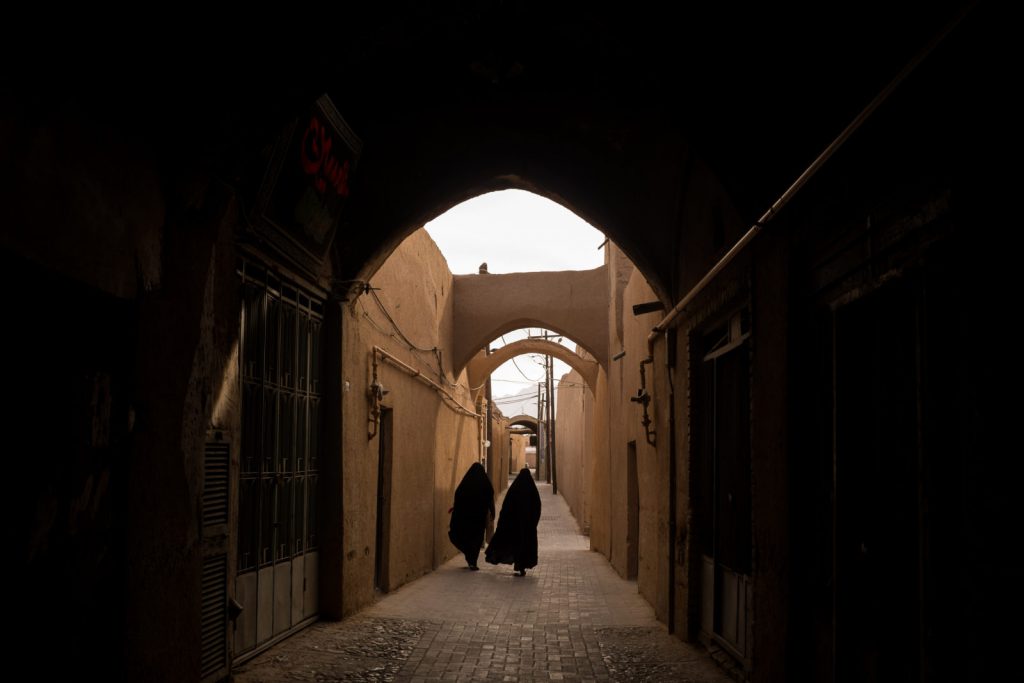The West, and in particular America, has still not grasped a fundamental truth about the Middle East: The Middle Eastern world does not want to be Westernized. This is not to be confused with modernization, as in efficient sewers, clean water, cheap and reliable electricity, or abundant food and goods. The Middle East fundamentally rejects Westernization because we so often attempt to sell them on the notion that secularization, democratization, and prosperity are synonymous concepts.
In the West, sepia photos of Iranian, Egyptian, Syrian, or Iraqi college students in miniskirts sans hijab—I own similar ones of my parents in their younger years—are passed around the Internet with lamentations of, “They looked just like us, and now….” Laments are in order over the Middle Eastern world, but you know not what you mourn, my fellow Americans. Those photos of modern, “liberated” peoples were almost all taken in times of monarchies or political strongmen.
Much of the Arab world and Persia (or broadly and colloquially, the “Middle East”) has been in civilizational pangs trying to understand itself and the modern world. Heirs to historic and legendary empires, they seek to keep themselves viable on the international stage without being manipulated and used by foreign nations, and to figure out if there’s any viable option between the poles of fanaticism and relativism.
This endeavor, finding the balance between fanaticism and relativism—that is, between fideism and reason-separated-from-God—is their overarching struggle.
Westernizing Involves Too Much Secularizing
When Napoleon Bonaparte’s men-o’-war filled the Alexandrian harbor on July 1, 1798, Ottoman Egypt not only entered a three-year period of occupation by the conquering French army, but was treated to Napoleon’s “civilizing mission.” Napoleon had brought along with him savants, scholars, to study the Egyptian civilization and impart to Egyptians the technology of the Industrial Revolution and the ideas of the French Revolution.
Abd al-Rahman al-Jabarti (1754-1824), an intellectual and eyewitness to this time period, wrote extensively on the interaction between the French and Egyptians. To Napoleon’s proclamation that “all men are equal before God; that wisdom, talents, and virtues alone make them different from one another,” Al-Jabarti wrote a refutation. He said the idea that all men are created equal is “a lie and stupidity.” He wrote: “You see that they are materialists, who deny all God’s attributes. The creed they follow is to make human reason supreme and what people will approve in accordance with their whims.”
Since that time, the Muslim peoples across that region have struggled with separating modernization from Westernization without compromising themselves. This includes Iran, though it is not an Arab country. They struggle with the ideas of the secularized West, no matter what particular form of government each country has taken or to which it aspires.
In fact, the religious component takes primacy in the region. In “Democracy In Iran: Why It Failed and How It Might Succeed,” Misagh Parsa quotes Ayatollah Khomeini saying, “preservation of Islam itself is more important than the lives of Muslims.”
Iran has tried to democratize since the Constitutional Revolution of 1905-1911. If we think of democratization as the process that enables people to influence their government’s structure and policies, and thereby hold their government accountable for oppression, then we can all agree that is good for mankind. For a variety of reasons, Iran’s democratization has failed time and again over the last century. Not least of which because some of its revolutionary leaders deceived the people until they were in power—a case in point is Khomeini during the 1979 revolution.
Iran Can Win Without Becoming a Western Democracy
From the first day of the latest riots, which began on December 28, many people took to the Internet cheering on what they believed—or more likely wished—to be the democratization of Iran via revolution. An incisive scholar and writer, Yoram Hazony, attempting to inject some reality into the exuberance over the protests in Iran, wrote:
It’s disturbing that so many American commentators can only think in binary: Anyone opposed to dictator must be a friend to democracy. Iran is a multi-national state that has only been held together by dictators. A less vicious autocracy would still be an improvement for the people living in Iran and for their neighbors, even if it’s not going to be a democracy.
If what we’re seeing is a true revolution, we should probably expect that any post-revolutionary Iranian regime will be less Shiite-Trotskyist—that is, less engaged in promoting foreign wars or agitation in the service of spreading Shia Islam. But realistically we might also expect it to remain autocratic in practice. This is not necessarily a bad thing for the Iranian people.
We quickly forget that the people of other countries value their own identity. Iraqis, Iranians (Persians), Syrians, Lebanese, and others love their heritage, and want to be the best of themselves. They’re not interested in becoming Americans, but they are interested in finding a way toward being happier as Iraqis, Persians, Syrians, etc. They know that freedom is necessary for a happier and well-ordered society, yet they have watched as freedom became untethered from ethical structures in the West, and they don’t want that for themselves.
How to Reconcile Reason and Religion
So what’s the answer? How can a country like Iran attain to some form of a healthy democracy? That’s what the Muslim world is trying to figure out as its religion and reason jostle about seeking a state of equilibrium. Wrote Jeane Kirkpatrick, “right-wing autocracies do sometimes evolve into democracies–given time, propitious economic, social, and political circumstances, talented leaders, and a strong indigenous demand for representative government.” Yet she also cautioned:
Hurried efforts to force complex and unfamiliar political practices on societies lacking the requisite political culture, tradition, and social structures not only fail to produce desired outcomes; if they are undertaken at a time when the traditional regime is under attack, they actually facilitate the job of the insurgents.
Given that we have a bad track record of foretelling and midwifing democracy in the Middle East, I urge some caution. It very well could be that the democratization of Iran will only come through a disruptive revolution rather than reform, but let’s not forget the outcome when we have given our help to topple oppressive regimes.
Luma Simms is a Fellow at the Ethics and Public Policy Center. She writes on culture, family, philosophy, politics, religion, and the life and thought of immigrants. Her work has appeared at First Things Magazine, Public Discourse, The Federalist, and elsewhere.









